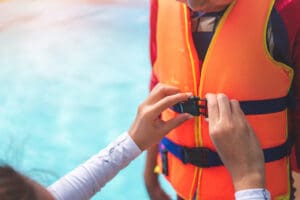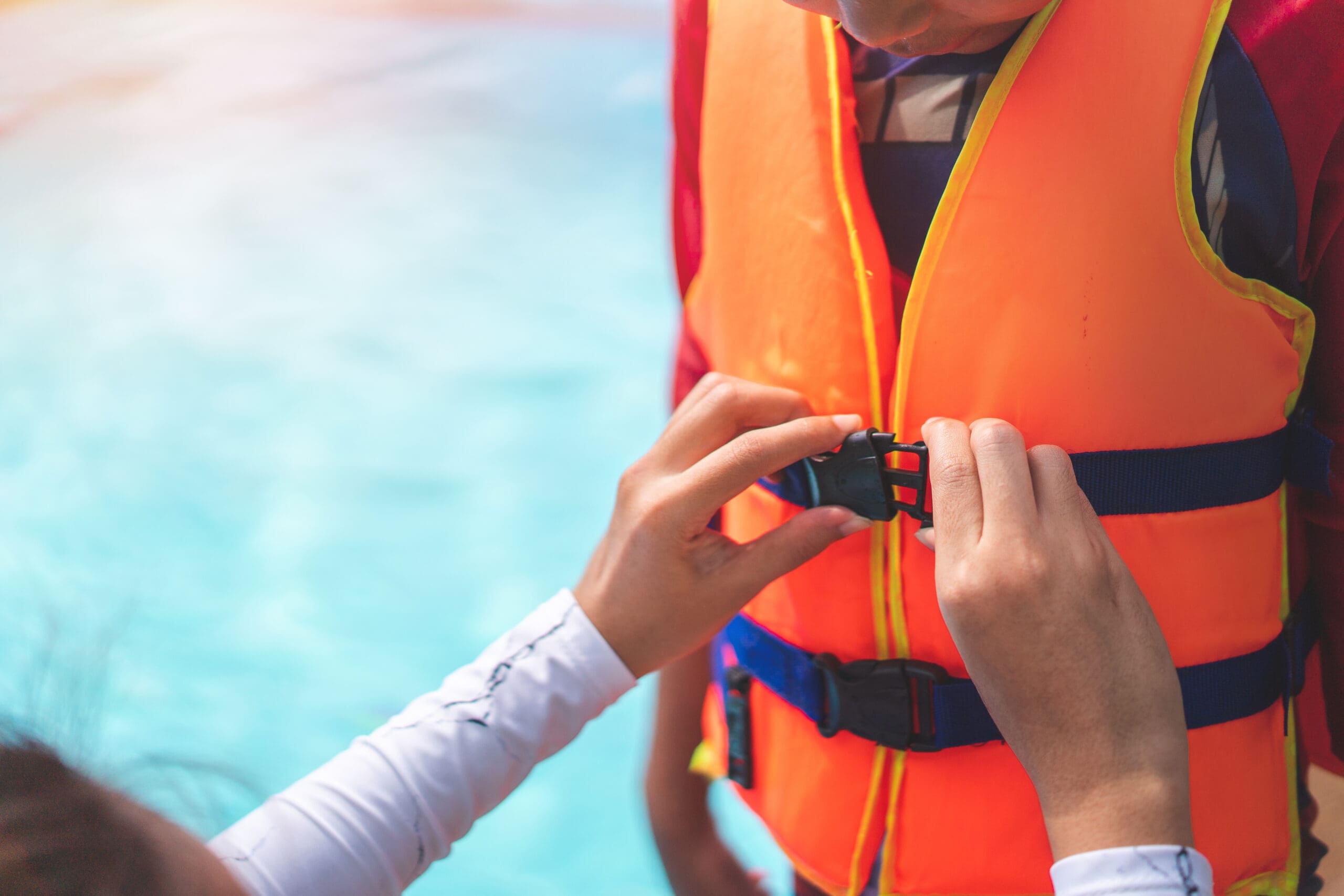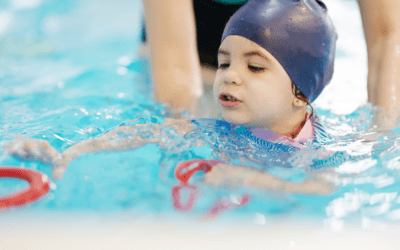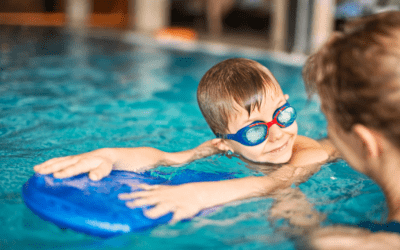A Parent’s Guide to Swim Lessons: Tips for Success in the Pool
Swimming is not just a recreational activity; it is a valuable life skill that every child should learn. As a parent, enrolling your child in a swim school can open the door to a world of aquatic adventures while ensuring their water safety. This parent’s guide aims to provide you with essential tips for navigating swim lessons, from choosing the right swim program to supporting your child’s learning journey. So, let’s dive in!
How to Choose the Best Swim School for Your Child?
What should I look for in a swim school?
When you’re looking to enroll your child in swim lessons, the first step is to find a reputable swim school. Start by researching local swim schools and reading reviews from other parents. Look for facilities that are clean, well-maintained, and equipped with a safe pool environment. A good swim school will offer structured swim programs that cater to different age groups and skill levels. Ensure that the school has a clear curriculum that emphasizes basic swimming skills and progressions. Additionally, consider the location and schedule of classes that fit your family’s routine, making it easier to commit to regular attendance.
How do I evaluate swim instructors?
The qualifications and demeanor of swim instructors play a crucial role in your child’s swimming experience. When visiting a swim school, observe the instructors in action. A great swim teacher should be enthusiastic, patient, and knowledgeable about teaching children how to swim. Ask about their certifications and experience in teaching swim lessons. Communication skills are also vital; the instructor should be able to connect with your child effectively, making their first swim lesson enjoyable and engaging. If possible, seek out testimonials from other parents regarding their experiences with specific swim instructors.

What to Expect During Your Child’s First Swim Lesson?
How can I prepare my child for their first swim?
Preparing your child for their first swim can be an exciting adventure! Start by booking swimming lessons with a qualified instructor who can provide a safe and supportive environment. Before the lesson starts, have a chat with your little one about what they can expect, and know your child—some may be eager to jump in, while others might need a little more time to adjust.
As the lesson progresses, your child will likely feel more at ease. Know your child and pay attention to their comfort level—if they’re feeling hesitant, it’s okay to get one-on-one time with the instructor. This will help your child work on their skills and encourage better technique. To make the most of this experience, remember to bring along any favorite toys or flotation devices to make it an enjoyable and possible experience at the pool. With these tips in mind, your child will soon be splashing around like a pro!
What should my child wear for their first swim?
To ensure a smooth and enjoyable first swim lesson, it’s important to have the right equipment. In addition to a proper swimsuit, and a swim cap to keep the hair dry, swimming goggles are vital for enhancing your child’s experience in the water. We also recommend bringing a water bottle for hydration. Invest in the right swim gear, including comfortable swimwear and accessories, to make your child feel at ease. As your child gets used to the water, they will likely become comfortable in the water, and this possible experience at the pool can help encourage better technique as they progress. Remember, it’s best to keep the atmosphere positive—if your child is afraid to ask questions, reassure them that it’s perfectly okay! With these tips in mind, you’ll ensure you have the best fit for their needs and the most bang for your buck in their swimming journey!
What equipment is needed for swim lessons?
Many swim schools also provide floating devices and other tools to aid learning; however, if your child has a special preference, consider bringing their personal floatation gear. Always check with the swim instructor to see if there are any specific requirements or recommendations for equipment. Being well-prepared with the right gear will set your child up for success.
How Can I Help My Child Learn to Swim Effectively?
What are some tips for encouraging my child during swim class?
Encouraging your child during swim class can be a rewarding experience that builds confidence and promotes an important life skill. Whether you choose private swim lessons or group swim lessons, ensure your child has a positive attitude towards swimming. It’s natural for children to have a fear of the water; take the time to address their concerns and celebrate each milestone, no matter how small.
Children start swimming at different ages, so be patient and expect your child to take their time in the water. You can even time your child to see how long they can float or swim to the side of the pool. Encourage them to join a swim team when they’re ready, as it can be a great form of exercise and social interaction. With your support, your child will have the best possible experience in the water and develop a new skill that lasts a lifetime!
How can I support my child in practicing swimming at home?
Supporting your child in practicing swimming outside of swim class can be an incredibly rewarding experience for everyone involved. Start by introducing your child to water in a fun and safe manner. You can even fill a small pool or use a bathtub to create a comfortable environment at home. This will help your little one get comfortable with the sensation of being in the water, paving the way for a smoother transition to a full swim.
Next, take the child through simple exercises that focus on floating, kicking, and basic arm movements. These activities will not only build their physical skills but also boost their confidence in the water. Be sure to bring plenty of enthusiasm and encouragement to each session, as a positive mindset can greatly impact their learning experience.
By regularly practicing these techniques, you will help your little one develop essential swimming skills and help ensure they enjoy their time in the water. Remember, the goal is to make swimming a joyful and fulfilling activity that they look forward to!
What role do swim goggles play in learning to swim?
Swim goggles are an essential tool in your child’s swimming journey. They protect their eyes from chlorine, allowing them to open their eyes underwater without discomfort. This comfort can significantly enhance their learning experience as they become more willing to explore beneath the surface. Goggles also help children develop a sense of confidence and control while swimming. Encourage your little one to wear their goggles during practice and lessons, reinforcing that they are a critical part of becoming a proficient swimmer.
What Are Common Questions Asked by Parents About Swim Lessons?
How do I know if my child is ready to start swimming lessons?
Determining if your child is ready to start swimming lessons can be an exciting journey! Look for signs of comfort around water, such as their enjoyment of bath time or playing at the pool. These moments can indicate that they are eager to embrace the world of swimming. Additionally, consider their age and physical coordination; most children are ready to begin lessons between the ages of 4 to 6, but every child is unique. If they can follow simple instructions and show a willingness to learn, they’re likely prepared to dive in!
Moreover, assess their emotional readiness. Do they express curiosity about water activities or show enthusiasm when they see others swimming? Encouraging your child to explore water in a safe environment can boost their confidence. Remember, starting swimming lessons is not just about learning a skill; it’s about fostering a love for water and building lifelong safety habits!
What should I do if my child is afraid of the water?
It’s completely normal for children to feel afraid of the water, but with the right approach, you can help them overcome their fears and learn to embrace the joy of swimming. Start by introducing your child to the water in a safe and comfortable environment. Perhaps a shallow pool can serve as the perfect backdrop for gentle exploration. Encourage them to play and splash around, making the experience fun and enjoyable.
Next, consider enrolling them in a beginner’s swimming class where a qualified instructor can guide them through the process with patience and care. It’s essential to celebrate small victories along the way, whether it’s simply getting their toes wet or floating on their back. Your support and encouragement will go a long way in helping them build confidence and feel safe in the water.
Finally, remember to be patient and understanding. Every child is unique, and with a little time, love, and persistence, your child can transform their fear into excitement for swimming and enjoying the water. Together, you can create wonderful memories that will last a lifetime!
How long does it take for a child to learn how to swim?
Learning how to swim is an incredible journey for a child, filled with excitement and discovery. With the right guidance and encouragement, most children can become comfortable in the water within just a few lessons. Typically, it takes about 6 to 12 weeks of regular practice for a child to learn basic swimming skills, but every child is unique. Some may grasp the fundamentals faster, while others may take a bit longer to conquer their fears and build confidence. Enrolling in weekly swim classes can provide the regular practice they need.
What truly matters is fostering a positive environment where they can thrive. Emphasizing fun and safety in the water will motivate them to keep trying, even if they face challenges along the way. Remember, patience is key! Celebrate each small victory as your child progresses in their swimming abilities, and soon enough, they’ll be splashing around with joy, mastering the art of swimming like a little fish!

How to Ensure Water Safety During Swim Lessons?
What safety rules should my child follow in the pool?
When it comes to enjoying the joys of swimming and water, safety should always be the top priority for your child! First and foremost, remind them never to run near the poolside. Slipping can lead to falls, which can be dangerous. Encourage them to take their time and always walk carefully around the water.
It’s also crucial for your child to know the importance of staying within designated swimming areas. Explain to them that being in a safe zone allows them to enjoy the water while minimizing risks. Additionally, ensure they understand the buddy system. Swimming with a friend not only enhances fun but also provides an extra layer of safety.
Finally, make sure they are aware of the importance of listening to lifeguards and following any posted pool rules. With these simple yet effective safety guidelines, your child will be well-equipped to have a fantastic time in the pool while staying safe and sound!
How can I teach my child about water safety?
Teaching your child about water safety is an essential life skill that can empower them and keep them safe. Start by introducing the basics, such as always swimming with a buddy and never running near the water. These simple rules can lay the foundation for a strong understanding of safety around water.
Next, consider enrolling your child in swimming lessons. This not only boosts their confidence in the water but also equips them with vital skills to respond in emergencies. Make these lessons fun and engaging to foster a positive attitude toward water activities.
Finally, lead by example. Show your child how to respect water environments and follow rules during family outings. Celebrate their progress and encourage open discussions about any fears they may have. Your proactive approach will instill a lifelong appreciation for safety and fun in the water!




